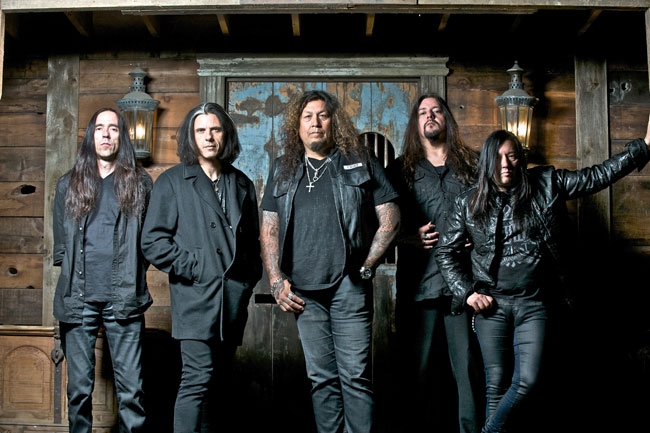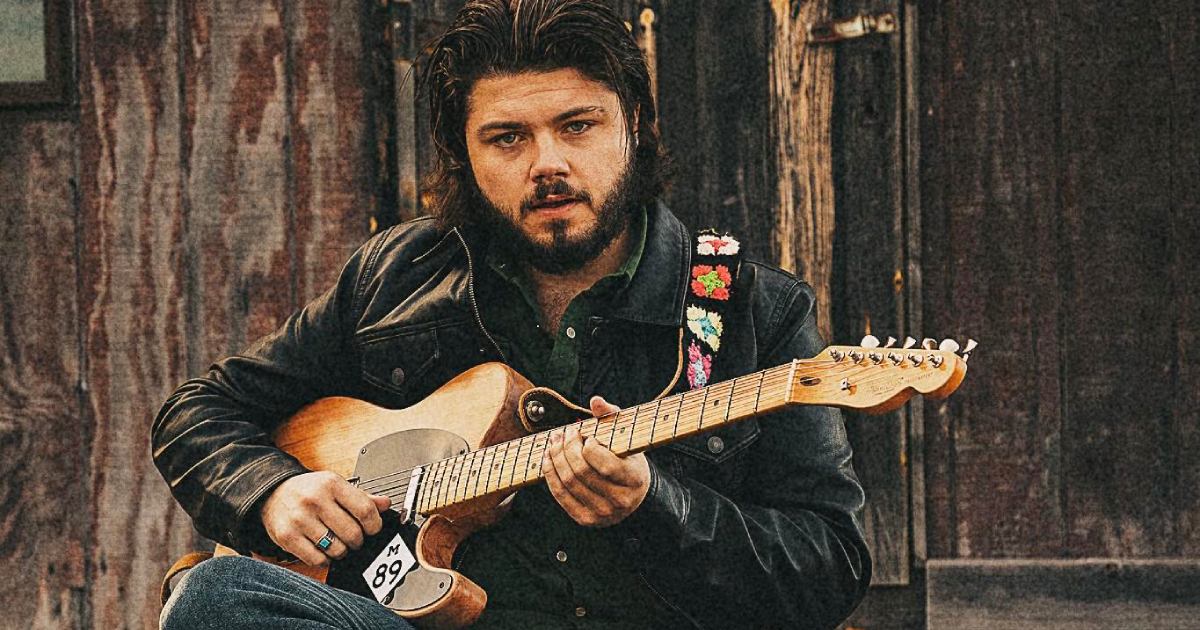You can't have a discussion about thrash metal without bringing up Testament. The band helped define the genre in the San Francisco Bay Area during the early 1980s, a scene widely recognized as one of the birthplaces of this faster, more aggressive take on heavy metal.
Now the band is riding the success of its latest studio recording, Dark Roots of Earth, the tenth album in its 30-year history. But this album, while true to the classic Testament feel and sound, was written with more of an inward approach, with less of a focus on what others want to hear and more on what the guys were feeling at the time.
"This one really is one of those records that when we were writing the songs we didn't really need to think about it," said Frontman Chuck Billy. "We'd just say, 'This feels good, let's go with it.' But it turns out our gut feeling was actually right."
Indeed it was, as Dark Roots found its way to No. 12 on the Billboard 200, was among Amazon's 2012 Editor Picks, and was also voted iTunes' U.S. Metal Album of the Year 2012.
"It came together pretty quick," Billy said of the album. "There's always those songs like 'Native Blood' that were written really fast. You know those are the ones that are really good, when they're there that fast. Those are the ones that always stand out."
"Native Blood," the album's second single, and a nod to Billy's Native American heritage, did stand out. In fact, the music video for the song won Best Music Video at the 2012 American Indian Film Festival.
"That was pretty awesome," Billy said of shooting the video. "I had the video idea in my head and wanted to bring the native culture in it. Dancers, fire, the whole thing. We shot it up on the reservation on our property. The community really joined in; the tribal council, police department, neighbors. I even met family members I never met before. The guys in the band really got to experience the energy. You felt this raw power and energy. It was pretty incredible."
Now the band is out on its first headlining tour since the new album's release, with support from a solid thrash metal cast consisting of Overkill, Flotsam and Jetsam and 4ARM.
"People are really interested in this kind of package, so we're going to go out and slay it."
Since Testament's last three tours saw the band members playing a lot of their earlier material, they're looking to switch it up a bit this time around.
"There's a whole new generation of fans out there who are interested in our new stuff," Billy said. "We're going to focus on more of our modern stuff, which is cool because our new stuff kicks ass."
The Old Testament
When the Bay Area thrash band founded, it was originally called Legacy, but the group ran into some issues when they discovered a jazz band already had the name trademarked. So they switched to Testament and called their first studio album The Legacy.
The New Testament
The current iteration of Testament features four of the members from the band’s seminal days in the late 1980s and early 1990s, including Chuck Billy (vocals), Eric Peterson (guitar), Greg Christian (bass) and Alex Skolnick (guitar). However, Testament rivals perhaps even Spinal Tap for the number of drummers who’ve been in the band. Over Testament’s three decades, the band played with more than a dozen drummers, including metal masters Paul Bostaph, John Tempesta, Dave Lombardo and Gene Hoglan — who’s currently on tour with them.
Metal Health
Chuck Billy didn’t get cancer — cancer got Chuck Billy. In 2001, the Testament vocalist was diagnosed with germ cell seminoma, a rare form of testicular cancer. Only Chuck Billy’s balls were too much for some punk-ass cancer, and the disease instead attacked his lungs and heart. He could have probably done without the heart, but he needed his lungs to spew out some killer metal. So he kicked that cancer’s ass, made a full recovery and was back to metal by 2003.
Top Testament
“Alone in the Dark,” “Trial by Fire,” “The Ballad,” “Souls of Black,” “Electric Crown,” “Hail Mary,” “True Believer”
—Joe Boomgaard





